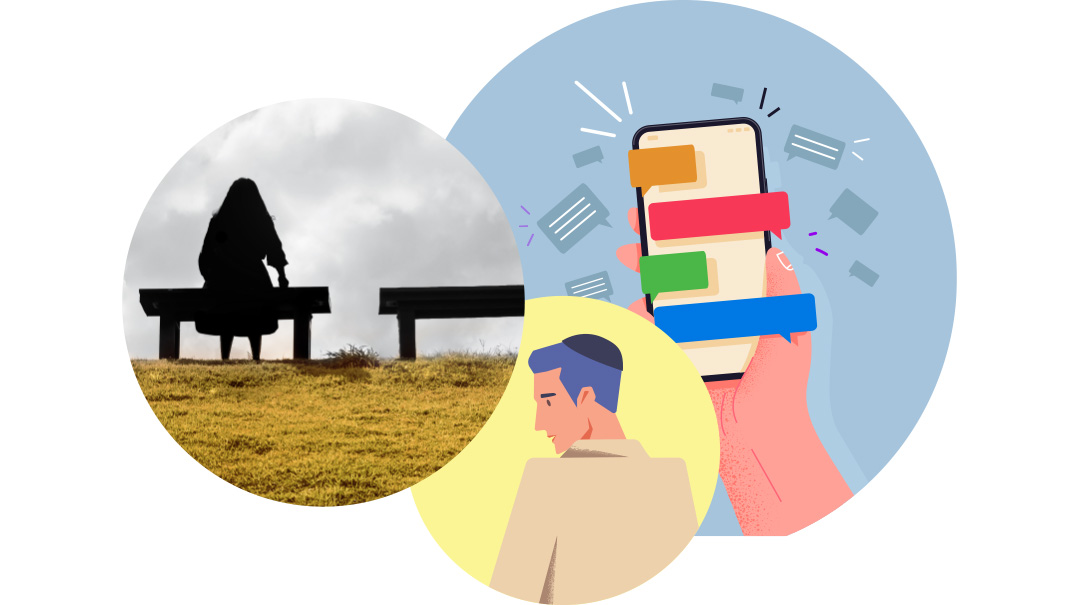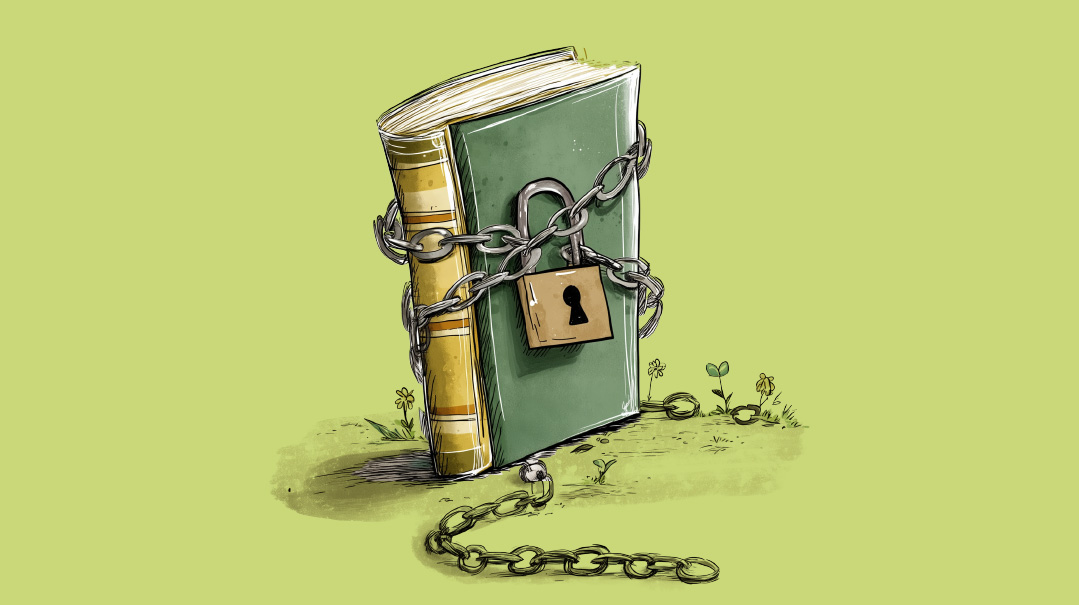Family First Inbox: Issue 813

“I’ve found that having bitachon is most difficult in the parshah of shidduchim”

Let’s Hold Their Hands [The Year He Answers / Issue 811]
Similar to Fay and the hundreds of single men and women she represents, the couples ATIME supports daven each year for a special zechus.
Like Fay, they watch their mothers cry as they bentsh licht, experience friends having children, cope with lost friendships as others move forward, and with the fear or concern of a younger sibling getting married and having a child before them.
Like Fay, they hear the well-intentioned-yet-still-hurtful comments from friends, family, and even strangers, and see the pitying glances as they walk into shul on Yom Tov.
He wonders if she will cry as she reads the haftarah on Rosh Hashanah and she worries how he will handle Kol Hane’arim.
ATIME is privileged to hold the hands of thousands of couples who walk the journey to building a family. This year we ask you to partner with us in supporting them with some simple acts:
- Think before you speak; consider your words and the impact they will have.
- Look women in the face when you speak with them; they know where your eyes usually go.
- Parents, if one of your couples says they are not coming for a meal or to shul to daven with you, respect their choice and make it easy for them.
Wishing all of Klal Yisrael a year of yeshuos and simchah.
Brany Rosen
Founder of ATIME and Director of Member Services
The Best We Can Do [Inbox / Issue 810]
I’m writing in response Mimi David’s letter about how parents need to do all of their research before saying yes to a shidduch.
As someone who was baruch Hashem zocheh to make four weddings, I’d like to share my experiences. When seeking information for shidduchim, you’re at the mercy of the people you call. Most people are not very forthcoming, and in general we are coached to focus on reporting the maalos when asked information. Unless you ask specific questions about a person’s personality or health, issues in these areas are very often not mentioned.
We do the best we can and then we send our children out on a date. We send them out specifically to get to know their date’s personality and middos, as well as any details about their health or personal issues that may be revealed in conversations.
Most often, such details and discoveries require deeper digging, the advice of a rav, and possibly the help of a dating coach. Sometimes someone may happen to mention something about the boy or his family. Very often, kids don’t pick up on these nuances — but their parents will pick up on them when their child reports back after her date.
It’s not possible to find out everything before you let your child go out. Additionally, with the climate of the shidduch crisis, people will do only basic research before giving a yes. What does a mother of a daughter who gets two dates a year do? Never mind the shadchanim who will only give you three days to do research.
From my own experiences, I’ve found that having bitachon is most difficult in the parshah of shidduchim. I run a business, and I see hashgachah in parnassah regularly. Yet somehow when it comes to shidduchim, people think they’re in control regarding who they say yes or no to. They’ll blame themselves for not doing enough research, giving a yes when they should have said no, not being aggressive enough in getting dates, or being too picky initially and ending up with an older single.
I have news: We’re in the hands of Hashem. Please don’t blame parents for being sloppy regarding their information.
Mother of Marrieds
Parenting Is a Responsibility [To Be Honest / Issue 810]
Mimi Fried’s article about parents who tolerate chutzpah spurred me to write about a related phenomenon.
“I’m not a helicopter parent.” As an educator, this is the response I’ve heard repeatedly from parents of children who are being mean. Their children are being cruel to other children, but they are unaware of it. When it’s brought to the parents’ attention, they say, “I believe in letting kids figure these things out on their own.”
This is not okay. We are frum Jews, and being a parent is a blessing and privilege that comes along with responsibility. When we merit giving birth to children, we are obligated to be aware of what’s going on in their lives, including how they treat others, so that we can be mechanech them. They won’t naturally decide to be kind on their own when they’re thriving as the queen bee. And “figuring things out on their own” doesn’t work very well for the children who are their victims either.
I don’t know if it’s laziness, overwhelm, or some secular influence. But to quote Mimi Fried, “We’re the adults in the room. And it’s time to start acting like it.”
Name withheld by request
Don’t Blame Us for Our Kids [To Be Honest / Issue 810]
I’m a fairly average parent. Not perfect, and not terrible.
I have a number of children close in age, all of whom grew up in the same home, under the same circumstances.
My older children are now in their teens, and I often marvel at the vast differences in their general behavior, as it relates to chutzpah in particular. I’ve come to the nonscientific conclusion that we as parents are extremely limited in the amount of influence we have over our children’s reactions to life’s events.
Yes, we have to model good behavior. We absolutely cannot put up with unacceptable behavior, and we must have strong boundaries. But even when that’s all done well, the outcomes are very different with different children.
There was a time when, if I saw a child acting chutzpahdig in the park or supermarket, I automatically looked at the mother through very judgmental eyes. Tsk-tsk, what kind of parent puts up with this?
The older — and I hope wiser — me is much less judgmental.
Yes, we’re the adults in the room — but adults can’t be blamed for every single thing children do.
R.S., Monsey
Learning from Divorce [A Better You / Issue 810]
I’m married happily, but I still thought Abbey Delouya’s suggestions for communicating with an ex were great common-sense suggestions that could be implemented in any healthy and thriving relationship.
It’s interesting, some of the divorced and remarried people I know felt like they learned how to be married through their divorce and applied what they learned to their second, more successful marriage. I say, learn from other people’s divorces and avoid your own to begin with!
Perel S.
Breaking Free [Month of Control / Issue 809]
Just before school ended last year, I went on a similar journey to the one described in your article, “A Month of Control,” in which women attempted to break free of their relationship with their smartphones.
I’m a wife, mother, daughter, and healthcare professional with good reason to have a smartphone. What could be better than a single device that provides me with a phone, calendar, contacts, and work information at my fingertips? Yes, that’s how I had always thought of my smartphone. Before Covid, my iPhone was basically an overpriced cell phone, but once Covid hit and I needed to be accessible everywhere and anytime, I was hooked. Of course, I put on a Tehillim app and subscribed to the Daily Dose, Meaningful Minute, and many other chizuk WhatsApp chats, which truly did inspire me. But I went from being “that mother without WhatsApp” to being on family, social and professional chats, and there really was no end to it.
I remember that the first time one of my children said, “You’re not listening to me because you’re on your phone,” I felt a jolt. By the time it was said to me for the hundredth time, it sadly didn’t elicit much of a reaction. My family remembers me saying over and over, “When Covid is over, I’ll get rid of WhatsApp.”
As time passed and it was no longer as urgent for me to be connected, I started to reflect on my smartphone use and realized I had where to improve. I tried valiantly to cut down — going off and on chats, and deleting and reinstalling email. But it wasn’t working. While I admire the women featured in the article who cut down on their smartphone use, I will say this: The smartphone is designed to keep bringing people back for more. I knew for myself that as long as I had a smartphone, I would not be able to make a lasting change.
It was Rabbi Wallerstein ztz”l who planted the seed of this change for me. When I watched Rabbi Wallerstein’s lectures, I loved to see the way he’d take out his flip phone and wave it around when he discussed smartphones and technology. Following Rabbi Wallerstein’s petirah, Mishpacha printed an article by Rabbi Eytan Kobre that mentioned how Rabbi Wallerstein had a flip phone and a notebook — he only had email access at work — and I remember thinking to myself, “If someone as busy as Rabbi Wallerstein can live day to day with just a flip phone, then what excuse do I have?” I made up my mind that very week to give up my smartphone.
I had many naysayers, but my husband and children gave me chizuk, and Hashem sent me many winks along way. I learned the hard way that a simple flip phone was unfortunately not going to work for me anymore, and I finally settled on a well-designed, “minimalist” Punkt phone. Also, it was clear to me that the role of technology in my profession had now shifted, and that there was no going back to my pre-Covid technology level. So now, in addition to my phone, I have a printout of my daily calendar, an iPad mini with my medical apps and information for when I am on the road and at work, and WhatsApp only on my work laptop. I have found that without being constantly attached to my smartphone, I could learn to make technology work for me — and not the other way around.
There have been many bumps along the road, but three months later, I am still going strong. If you asked my husband if he sees a difference, he would say yes and that he’s now wondering if he could do it too. If you asked my children if they see a difference, they would say, “We have our Mommy back!” Do I see a difference? So far it’s made a huge difference to my quality of life, and the quality of time and attention I give to my family. There is nothing in the world that would make me want to go back.
A Reader Who Chose to Disconnect to Reconnect
Safe Support [Inbox / Issue 808]
The dynamic conversation in Family First about abuse highlights the importance of the community’s role and its power to make a difference in the lives of victims and their families.
When I was facilitating a support group for frum survivors of domestic abuse, I asked what they wished their community and family knew about domestic violence. There were a few common themes, including understanding that domestic violence is much broader than physical abuse, as illustrated in the Mishpacha articles. In the communities we serve, abuse is more often non-physical, coercive control. They also wanted others to understand that the decision to leave or stay in a relationship is very complex. They do not want to be judged but respected and supported during their journey.
Most importantly, the survivors wanted us to know that there is power in the community. One of the most significant barriers to accessing help is the deep shame and stigma associated with being a victim. The community response could be the reason a survivor chooses to stay in an unsafe relationship. At the same time, community has great power and potential to make it easier for a survivor to get support. When we, as a community, acknowledge that domestic violence is both a family and community issue, we are part of the solution.
Shalom Task Force is committed to education and prevention work. We work with over 30 Bais Yaakovs, yeshivos and day schools to teach about healthy relationships, red flags and how to get help. We also meet with kallah and chassan teachers, rabbanim, rebbetzins and community members to spread awareness.
We often think as individuals we cannot really make a difference, but if we can each spread awareness, bring education to our schools and communities, and are supportive of others, we can make a change.
Since these articles and letters were published, there has been a noticeable increase in calls to Shalom Task Force’s Hotline. More community members are reaching out for help to a safe, confidential place for support. Nobody is asked for any identifying information. The hotline is meant to be a place where people who are struggling in relationships or being hurt or abused are heard, believed, and helped to know that they are not alone. Together, we can create a safer and more supportive community.
Shoshannah D. Frydman, PhD, LCSW
Executive Director, Shalom Task Force
(Originally featured in Family First, Issue 813)
Oops! We could not locate your form.







